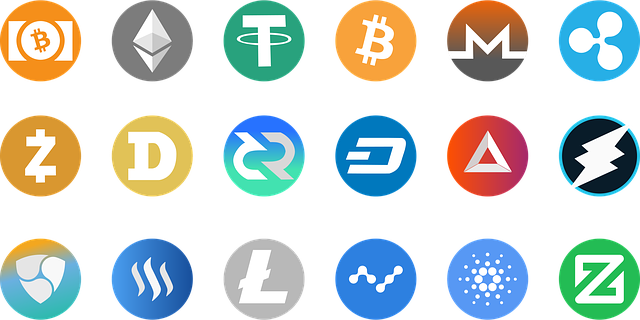Understanding Crypto Vocabulary: A Guide for Novice Traders
As cryptocurrencies continue to gain popularity, it's crucial for every aspiring trader to familiarize themselves with the essential crypto vocabulary. Whether you're a beginner or looking to enhance your understanding of the market, this article will help you grasp the key concepts and terms used in the world of cryptocurrency. So, let's dive in!

1. Cryptocurrency
Cryptocurrency refers to digital or virtual currencies developed using cryptographic technology for secure transactions. One of the most well-known cryptocurrencies is Bitcoin (BTC), but there are thousands of other cryptocurrencies available today, each with its own unique features and uses.
2. Blockchain
Blockchain is a decentralized digital ledger that records transactions across multiple computers. It ensures transparency, security, and immutability of data. Blockchain technology forms the backbone of cryptocurrencies and offers various applications beyond their use as a medium of exchange.
3. Wallet
Crypto wallets are software applications or physical devices used to store, manage, and transfer cryptocurrencies securely. Each wallet has a unique address and private key, allowing users to access and control their digital assets.

4. Exchange
Crypto exchanges are platforms where users can buy, sell, and trade cryptocurrencies. These platforms facilitate the exchange of one cryptocurrency for another or for traditional fiat currencies, such as US dollars or euros. Some popular exchanges include Coinbase, Binance, and Kraken.
5. ICO
An Initial Coin Offering (ICO) is a crowdfunding method used by cryptocurrency startups to raise funds. In an ICO, investors purchase tokens or coins in exchange for established cryptocurrencies or fiat currencies. ICOs have gained both attention and criticism due to their potential for high returns and associated risks.
6. HODL
HODL, derived from a misspelling of "hold," is a term in the crypto community that originated from a famous Bitcoin forum post. It encourages investors to hold onto their cryptocurrencies rather than selling them, even during market downturns.

7. Altcoin
Altcoin, short for "alternative coin," refers to any cryptocurrency other than Bitcoin. Altcoins encompass a broad range of cryptocurrencies and serve various purposes, including enhancing transaction speed, implementing privacy features, or offering niche functionalities.
8. Mining
Mining is the process of validating and adding new transactions to a blockchain. Miners solve complex mathematical puzzles using computational power to verify transactions and secure the network. As a reward for their efforts, miners often receive newly minted cryptocurrencies.
9. Smart Contract
Smart contracts are self-executing agreements coded on a blockchain. They eliminate the need for intermediaries by automatically executing contract terms once predetermined conditions are met. Smart contracts have gained attention for their potential to revolutionize various industries, including finance, insurance, and supply chain management.

10. FOMO and FUD
FOMO (Fear of Missing Out) and FUD (Fear, Uncertainty, and Doubt) are two common emotional drivers in the crypto market. FOMO refers to the urge to invest or buy cryptocurrencies due to the fear of missing out on potential gains. Conversely, FUD describes the spreading of negative information or uncertainty to create panic-selling and drive prices down.
Final Thoughts
While this article provides an overview of essential crypto vocabulary, there are numerous other terms worth exploring as you delve deeper into the world of cryptocurrencies. Remember to stay curious, conduct thorough research, and keep up with the evolving crypto landscape. Happy trading!
For more insights and detailed articles on cryptocurrency trading, visit our website here.